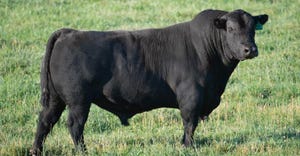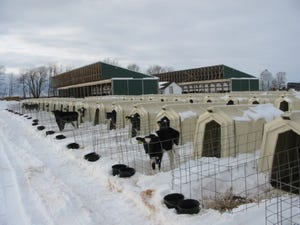Lallemand Animal Nutrition introduces enviromate GUARD in U.S.
Specialized formulation works on microscopic level with enzymes and beneficial bacteria to result in improved animal environment and easier bedding and manure handling.
October 9, 2018

Lallemand Animal Nutrition has introduced enviromate GUARD bedding and manure treatment to the U.S. market. This specialized formulation works on the microscopic level with the dual-action of enzymes and beneficial bacteria to result in an improved animal environment, easier bedding and manure handling and increased fertilizer value.
“Producers are often challenged in balancing cow comfort, productivity and manure handling and odors with existing housing and manure handling practices,” said Dr. Bob Charley, forage products manager, Lallemand Animal Nutrition. “Our new bacteria and enzyme-based product, enviromate GUARD, is a natural dual-action microbial product that helps improve air quality, improving the working environment, reduce fertilizer inputs and improve labor efficiencies, saving producers time and money.”
According to Lallemand, field trials show that enviromate GUARD gave an 8.5% improvement in bedding dry matter over lime-treated pens, along with a 7.5% increase in nitrogen content. In addition to the increased fertilizer value due to higher nitrogen retention, enviromate GUARD results in more consistent manure handling properties, reduction in odors, increased manure storage capacity, improved composting and most importantly, it is safe for workers, the company said.
According to the announcement, enviromate GUARD is a dual-action dry-granular product that can be applied to compost pack barns or to free-stalls bedded with manure solids. When applying directly to the bedding, a 50-lb. bag treats 200 stalls (4 oz. per stall or 28 sq. ft.) applied one time per week. When applying to the manure heap or slurry, apply 50 lb. per 40 tons of manure or 18 lb. per 1,000 gal., respectively.
You May Also Like

.png?width=300&auto=webp&quality=80&disable=upscale)

